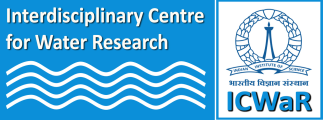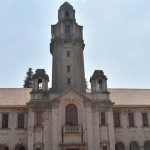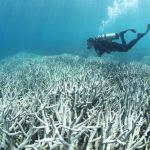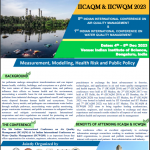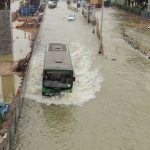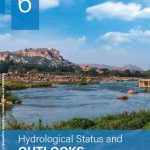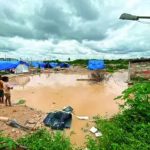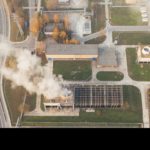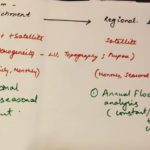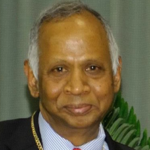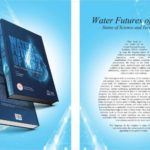ICWAR Seminar Series
|
29 May
2019
|
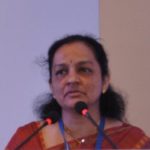
Name of the Speaker: Dr.Purnima Jalihal Title of the Seminar: Desalination – Technical challenges and Road Ahead Date and Time: 29th May, 2019 (Thursday), 4:00 PM Venue: Lecture Hall, ICWaR About the speaker: Dr. Purnima Jalihal is a senior scientist who heads the Energy and Fresh Water group in the National Institute of Ocean Technology, India. She has coordinated many first – ever projects in ocean energy and desalination. She has jointly coordinated the world’s first ever ocean thermal gradient based desalination plant at Kavaratti island in the Lakshadweep group in the Arabian Sea which has helped transform the lives of the small island community which had a serious lack of drinking water. For this work she was awarded the Vishwakarma Medal in 2006 by the Indian National Science Academy. This success led to more plants in islands and a demonstration plant offshore. Dr. Purnima is now attempting to scale up the technology and power such plants using ocean renewable energies. She has several firsts in the area of ocean energy as well, including a wave powered desalination system at Kerala, a wave powered navigational buoy and a hydrokinetic turbine. Her areas of specialization include offshore structures, floating and structural dynamics, renewable ocean energies and desalination.She has MS and PhD degrees in Civil Engineering from Duke University , USA. She is currently working on a large scale desalination project at Tuticorin thermal power station using the condenser reject heat and a self powered thermal desalination at Lakshadweep using the power generated from the temperature gradient. Additionally, she played a pivotal role is getting Cabinet’s approval for India to become Member Country of the International Energy Agency’s Ocean Energy Systems (IEA-OES) Technology Collaboration Program (TCP) with the NIOT as the participating agency in 2016 and held the first Ex Co meeting in India in November 2017. Abstract: The current scenario where water stress dominates most of the regions in India warrants new technological solutions for fresh water generation. Desalination has been on the horizon for some decades now due to large plants in the Gulf. There are several types of desalination methods predominantly thermal and membrane based. The technical challenges include proper methods for intake and discharge of seawater, optimization of thermodynamic parameters for thermal systems, chemicals and bye products for membrane methods and energy requirement optimization. The location, water quality and environmental impact and other parameters like availability of steam all need to be considered for appropriate selection of the desalination method. Desalination of brackish water as well as seawater promises to be a good solution to the water crisis. Desalination methods are energy intensive and towards lower carbon footprint, use of renewable energy forms need further exploration and development. Cost and energy reduction for thermal technologies and safe disposal of by products for membrane methods is the need of the hour. |
|
25 Apr
2019
|
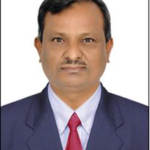
Name of the Speaker: Dr. G S Srinivasa Reddy (KSNDMC) Title of the Seminar: Drought Monitoring System in Karnataka Date and Time: 25th April, 2019 (Thursday), 4:00 PM Venue: Lecture Hall, ICWaR About the speaker: Dr. G S Srinivasa Reddy is currently serving as Director in Karnataka State Natural Disaster Monitoring Center (KSNDMC) since January 2015. He had his Masters and PhD degree from Department of Geology from Bangalore University. He has joined this organization during 1991 as a scientist and served as scientific officer in KSNDMC from 2008-2015. His area of specialization is Hydro-Geology, Geo Technology, Ground Water Hydrology, Surface Water Hydrology and Agro –Meteorology. He is serving as a member of Geological Society of India. He is also a member in state level Weather Watch Committee, state level Co-ordination Committee for Crop Insurance, state level Technical Committee on Sujala Watershed and Technical Committee on Climate Change Initiatives (EMPRI). He is a member of Karnataka State Disaster Management Authority, Technical committee of Karnataka State Ground Water Authority, general body of Karnataka Science and Technology Promotion Society (KSTePS), Expert Committee for Cloud Seeding Operations in Karnataka and State Ground Water Co-ordination Committee (SGWCC). He is serving as member in Technical Committee for issue of crop advisories in Karnataka State, Technical Committee on Interstate Water Disputes and Technical Committee to implement National Cyclone Risk Mitigation project. Abstract: Karnataka state is highly vulnerable to drought. In the last 13 out of 16 years (2002-2018), most parts of Karnataka has been subjected to severe drought. The successive drought condition has resulted in shortage of water for drinking, irrigation, etc. Also, groundwater levels are depleting and quality of water is getting deteriorated. |
|
29 Mar
2019
|
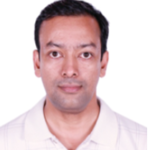
Name of the Speaker: Prof. Bharadwaj Amrutur Title of the Seminar: Challenges for City Scale Multi-Sensor Anlaytics Date and Time: 29th March, 2019 (Friday), 4:00 PM Venue: Lecture Hall, ICWaR About the speaker: Dr. Bharadwaj Amrutur is a Professor in ECE Department and Chairs the Robert Bosch Centre for Cyber Physical Systems, IISc Bangalore. After completing his B.Tech in Computer Science and Engineering in 1990 from Indian Institute of Technology, Bombay, he did his M.S. in Electrical Engineering in 1994 from Stanford University, USA. Thereafter, he pursued his Ph.D. in Electrical Engineering in 1999 from Stanford University, Stanford, CA, USA. Abstract: Cities and Utilities have started deploying connected sensors as part of their smart cities effort. Examples include pollution sensors in Pune, water sensors by BWSSB, smart electricity meters, smart water meters etc. However there is still a large gap in terms of general understanding of how to do this deployment in the most cost effective manner, while extracting the maximum value out of the data. He discussed some of the technical gaps in sensor fabrication, sensor calibration, deployment optimization, data access and multi-sensor analytics and talked on some of his team’s ongoing work in the context of air quality sensors and pilot activities in Pune and Electronics City. |
|
20 Feb
2019
|
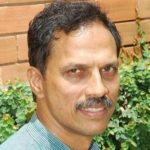
Name of the Speaker: Dr. Sharachchandra (Sharad) Lele Title of the Seminar: Reforming Water Governance: Philosophy, Hydrology and Institutional Analysis Date and Time: 20th February, 2019 (Wednesday), 4:00PM Venue: Lecture Hall, ICWaR About the speaker: Sharachchandra (Sharad) Lele got a B.Tech. in Electrical Engineering in IIT Bombay (1984) but then decided that environmental studies were more exciting and socially relevant. So, he did an M.S. on the environmental impacts of large dams at the Indian Institute of Science, Bangalore (1987) and then a Ph.D. in Energy and Resources from the University of California, Berkeley (1993), focusing on forest use in the Western Ghats. Abstract: Karnataka, like most of the peninsular states in India, is facing a serious water crisis. Basins have closed, groundwater is depleting, baseflows have dried up, and existing water is being inequitably distributed. Conventional responses tend to be supply side, lacking an integrated hydrological understanding, and top-down. A paradigm shift is required in multiple dimensions: the normative goals, the world view, the hydrological underpinnings and the institutional arrangements. He discussed the rationale and key elements of such a paradigm shift and make a case for using an interdisciplinary value-based framework for all efforts in reforming water governance. |
|
01 Jan
2019
|

Name of the Speaker: Dr. Aditi Bhaskar Title of the Seminar: Effects of Urban Development on Streamflow Date and Time: 1st January, 2019 (Tuesday), 4:00 PM Venue: Lecture Hall, ICWaR About the speaker: Dr. Aditi Bhaskar is an Assistant Professor in the Department of Civil and Environmental Engineering at Colorado State University. She specializes in changes to hydrologic systems from urban development, with a focus on interactions between groundwater, streams, stormwater, and landscape irrigation. She recieved her Ph.D. in Environmental Engineering from University of Maryland, Baltimore County. Abstract: Urban development consists of a collection of processes that have variable effects on water budgets, groundwater recharge, and stream flow flow. Some of the processes that were focused on in this seminar are infiltration of storm water, changes to evapotranspiration, lawn irrigation, water supply pipe leakage, impervious surface cover, and infiltration of groundwater into wastewater pipes. The methods used to investigate these drivers of urban base flow have been data analysis, field data collection, and mathematical modeling. Watershed-scale storm water infiltration was implemented as part of low impact development in a watershed that was converted to suburban development in Clarksburg, Maryland, USA. Stream base and total flow both were found to increase during development, relative to flow in reference urban and forested watersheds. The driving processes are suggested to be a reduction in vegetative cover and evapotranspiration, and an increase in focused groundwater recharge with watershed-scale storm water infiltration. In Baltimore, Maryland, USA, water supply pipe leakage and impervious surface cover were found to be less important drivers of subsurface storage compared to infiltration of groundwater into wastewater pipes. Current work on drivers of urban base flow focusing on semi-arid areas were discussed. |
